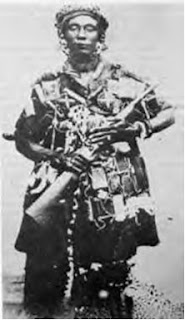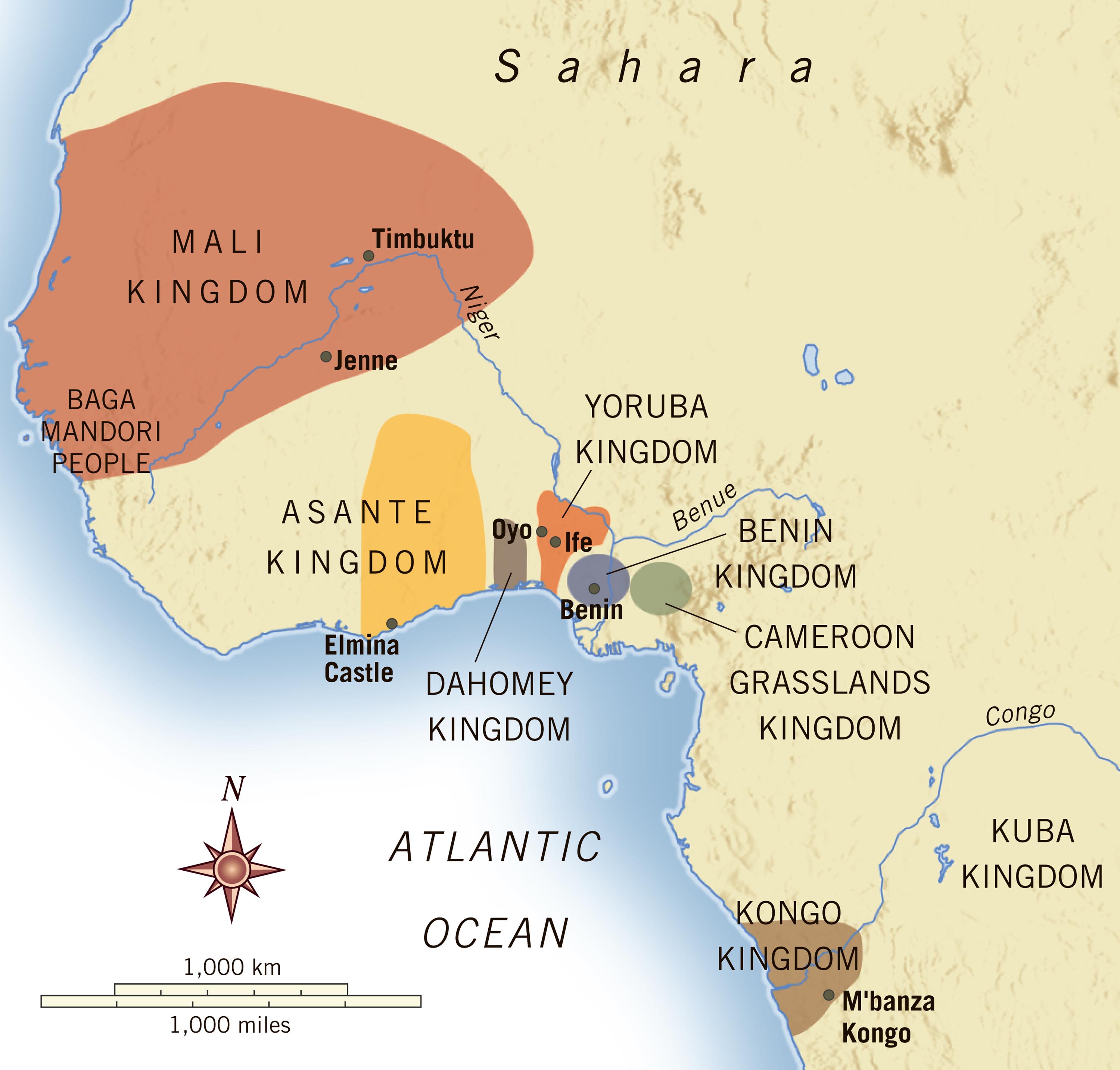It's 1896, and things are looking bleak for the Ashanti confederacy. King Prempeh I and his entire government have been exiled to the Seychelles, and the British have control of the capital city of Kumasi. English soldiers have been plundering the treasures of the Ashanti, and now their governor, Frederick Hodgson is demanding the Golden Stool¹, the symbol of Ashanti kingship. The men of the Ashanti are defeated, and ready to give in.
However, Yaa was no man. She was the Queen mother of the Ejisu, and the grandmother to the exiled king. She was outspoken and fearless, and had been ruling Ejisu for years. Most importantly, Yaa hadn't given up. Her grandson was hundreds of miles away, her land had been ravaged, but she wasn't ready to give in. When all the men were talking about giving the British what she wanted, she stood up and told them that rather than give the British the Golden Stool, essentially admitting defeat, she and the Ashanti women would fight the English to her last breath.
Yaa was a powerful woman. Born in the village of Ejisu, she had ruled alongside her brother until his death. She was a skilled farmer and her years of fighting for the empowerment of Ashanti women had earned her respect. Though the men of the Ashanti hesitated to join her, the women did not.
In order to encourage their men to war, Yaa encouraged the women to refuse marital relations to their husbands until they agreed to rise up. Additionally, Yaa led the women of the Ashanti in victory marches and rituals around Ejisu on a near daily basis.
After the men had been browbeaten into joining her, Yaa set her warriors about building stockades and traps for the English. She also encouraged her soldiers in the use of psychological warfare via drum beats. She used these 'talking drums' to send signals to the English. One beat meant 'prepare to die' and three meant 'cut off the head'. This was a very effective tactic, and the sound of Ashanti drums instilled terror in the English.
In addition to drums and stockades, Yaa broke with tradition, and appeared on the battlefield herself. She dashed about the battlefield with a gun, fighting the same as the men under her command. Under her leadership, the Ashanti managed to reconquer Kumasi, as well as drive back the English.
Unfortunately, her success didn't last. The British brought in foreign soldiers from their vast empire, and they pushed the Ashanti back to the village of Offinso.
During the course of the war Yaa and her advisers were captured. Like her grandson, Yaa was deported to the Seychelles Islands. Yaa died there in 1921, and her remains were later brought back to Ashanti lands.
¹The Golden Stool is, essentially, the Ashanti equivalent of the Stone of Destiny. It signified that the possessor was fit to rule, and surrendering it to the English would have been a sign of assenting to British rule.
Sources
Yaa Asantewaa or the Ashanti Cry for Freedom
Queen Mother Yaa Asantewaa: 1840-1921
Yaa Asantewaa: Ghana's Queen Mother and Fearless African Warrior
Yaa Asantewaa-Queen Mother of the Ashanti Confederation
Queen Mother Yaa Asantewaa of West Africa's Ashanti Empire
 |
| Yaa Asantewaa |
Yaa was a powerful woman. Born in the village of Ejisu, she had ruled alongside her brother until his death. She was a skilled farmer and her years of fighting for the empowerment of Ashanti women had earned her respect. Though the men of the Ashanti hesitated to join her, the women did not.
In order to encourage their men to war, Yaa encouraged the women to refuse marital relations to their husbands until they agreed to rise up. Additionally, Yaa led the women of the Ashanti in victory marches and rituals around Ejisu on a near daily basis.
After the men had been browbeaten into joining her, Yaa set her warriors about building stockades and traps for the English. She also encouraged her soldiers in the use of psychological warfare via drum beats. She used these 'talking drums' to send signals to the English. One beat meant 'prepare to die' and three meant 'cut off the head'. This was a very effective tactic, and the sound of Ashanti drums instilled terror in the English.
In addition to drums and stockades, Yaa broke with tradition, and appeared on the battlefield herself. She dashed about the battlefield with a gun, fighting the same as the men under her command. Under her leadership, the Ashanti managed to reconquer Kumasi, as well as drive back the English.
 |
| Map of the Kingdoms of West Africa. The Ashante (or Asante) Kingdom occupied the same area as modern Ghana. |
During the course of the war Yaa and her advisers were captured. Like her grandson, Yaa was deported to the Seychelles Islands. Yaa died there in 1921, and her remains were later brought back to Ashanti lands.
Today Yaa is remembered as one of the great heroes of the Ashanti empire. Her uprising against the English was the last major African uprising lead by a woman. There are schools named after her, and every year a prize in her name is awarded to an extraordinary Ghanaian woman. Many Ghanaians and people of Ghanaian descent name their daughters after her. Though the Ashanti Confederation may be no more, Yaa's fearlessness and bravery lives on.
¹The Golden Stool is, essentially, the Ashanti equivalent of the Stone of Destiny. It signified that the possessor was fit to rule, and surrendering it to the English would have been a sign of assenting to British rule.
Sources
Yaa Asantewaa or the Ashanti Cry for Freedom
Queen Mother Yaa Asantewaa: 1840-1921
Yaa Asantewaa: Ghana's Queen Mother and Fearless African Warrior
Yaa Asantewaa-Queen Mother of the Ashanti Confederation
Queen Mother Yaa Asantewaa of West Africa's Ashanti Empire
